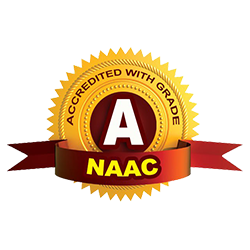Effective curriculum delivery
It is crucial to construct the curriculum because it offers a vibrant and enriching learning environment. The role of the teaching is taken into consideration when creating the curriculum for any classroom. They must create a course outline that supports students' mental fortitude. On paper, the curricular framework and classroom policies could appear perfect. They are in charge of influencing their pupils' futures through an updated and dynamic curriculum.
Curriculum planning
• Establish our expectations and goals. Pick a subject area to concentrate on Use pre-made lesson plans and do your research on the subject. List three to five sources for each notion. Discover more about our students. Begin by using a few repeatable
Pharmacy undergraduate and graduate programmes are offered at the Annai JKK Sampoorani Ammal College of JKKMMRF, which is affiliated with the Tamil Nadu Dr.MGR Medical University. The Pharmacy Council of India, New Delhi, has updated its "The Revised Regulations for the UG and PG Degree Program (CBCS)" regulations. the impact of the 2016–17 academic year. The Pharmacy Council of India has the right to periodically change the regulations. The Tamil Nadu Dr.MGR. Medical University's curriculum now includes a Choice Based Credit System as of 2017.
Department advisory committee
The Department Advisory Committee communicates and keeps in touch with important partners. The HOD, who chairs the department advisory committee, receives the committee's report and keeps track of the program's development. The committee creates and suggests programme goals and objectives that have been updated or changed. The committee also examines and assesses the discrepancy between curriculum and industry standards, providing any necessary feedback or recommendations for further action.
Subject allocation
The widely acknowledged educational objective of ensuring that all children receive high-quality education has served as a major driving force behind this focus. In order to ascertain whether there is any sorting pattern in the allocation of novice and experienced faculties to colleges, this study—equipped with similar policy concerns—examines the initial assignment of novice faculty and the voluntary transfer of senior faculties. The descriptive and correlational analyses show unequivocally that both novice and senior faculties are unevenly distributed.
The assignment of subjects is based on the expertise, openness, prior experience, and performance on university exams of the faculty members. The HOD meets with the faculty to discuss the best teaching strategies and timeline for finishing the syllabus.
Design of course plan:
The steps and procedures for designing effective learning environments and opportunities for students. Students are able to access knowledge, acquire skills, and engage in higher levels of thinking through purposeful and structured exposure to instructional materials, learning activities, and interaction.
To present the subject material for a better performance on internal assessment tests, each faculty member creates a thorough course plan for theory and laboratory, depending on the credits stated in the course. The course syllabus consists of textbooks, reference works, internet sources, question banks, ICT tools, and additional learning materials.
Monitoring the course delivery
The study of classroom-level assessments of students' learning progress and the connections between these assessments and students' attitudes, academic performance, and social behaviour.
The Principal and HODs periodically check if the course is being delivered. Students provide feedback on a regular basis to let professors determine whether they are completing the course material. The student representatives discuss their struggles in academic areas during the periodic meetings of the Class Committee.
Experiential learning
Experiential education is a concept and practise that encourages educators to deliberately include students in hands-on learning and focused reflection in order to advance knowledge, sharpen abilities, and clarify values.
Guest lecturers, industrial visits, industry engagement meetings, hands-on training, and various technical training programmes are organised with experienced resource persons to strengthen the curriculum inputs and to prepare students for the challenges of the rapidly evolving technical world.
Mentoring
A mentor can provide a student with personal support throughout the ups and downs of academia. This can reinforce a student's sense of resilience. As students learn new things, they may wish to discuss their ideas with mentor’s shares their interests. Mentoring is about assisting and encouraging students to manage their learning so that they can reach their full potential, enhance their abilities role modeling to a mentee, while also sharing knowledge about his or her career path By setting goals and providing feedback, a mentor can assist them in focusing their efforts. Each faculty is assigned as mentor for 20 students



 1800-180-5522
1800-180-5522